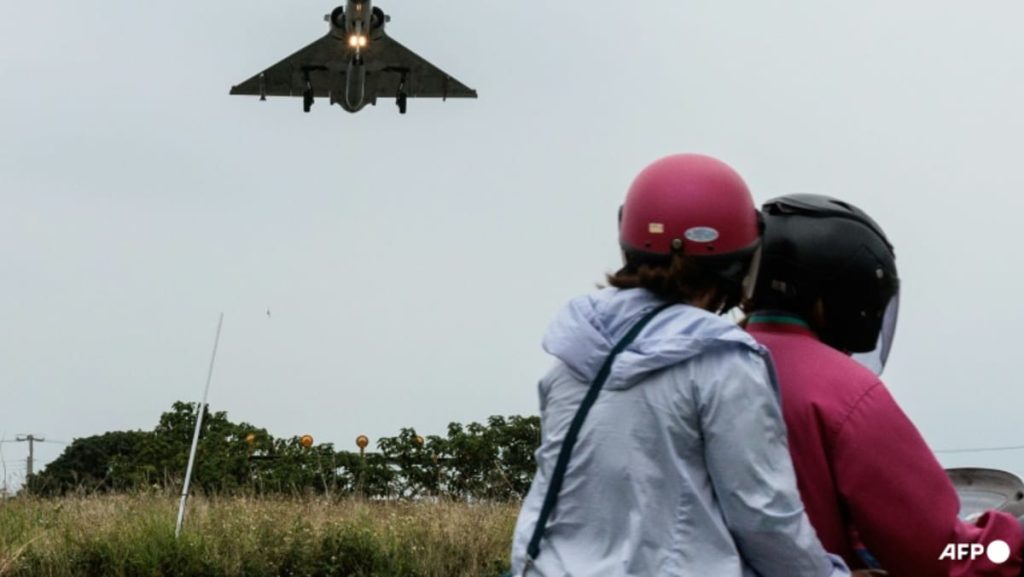President Lai of Taiwan emphasized the importance of defending the country in the face of external challenges and threats during a speech on Thursday. He did not explicitly mention the ongoing drills but reaffirmed the commitment to upholding the values of freedom, democracy, and maintaining peace and stability in the region. China has labeled President Lai as a “dangerous separatist” who would bring about war and decline to the island, further escalating tensions between the two nations.
Following President Lai’s inauguration speech on Monday, which celebrated a “glorious” era for Taiwan’s democracy, Beijing expressed displeasure with the leader’s rhetoric. The drills that began on Thursday morning in the Taiwan Strait and surrounding areas, including Taiwan-administered islands, were a response to the growing tensions. China’s military released posters showcasing its military capabilities, emphasizing its readiness to counter any moves towards Taiwan independence through the use of rockets, jets, and naval vessels.
By the evening of the same day, Taiwan’s defense ministry reported the detection of 49 jets and planes, with 35 of them crossing the median line dividing the Taiwan Strait. The military activity in the region has raised concerns about potential military confrontation and instability. The provocative actions and rhetoric from both sides have heightened fears of conflict and strained the already tense relationship between China and Taiwan.
The ongoing drills and military posturing by China near Taiwan have been met with strong responses from President Lai and the Taiwanese government. Despite China’s military capabilities and aggressive stance, Taiwan remains determined to defend its sovereignty and resist any attempts to undermine its freedom and democracy. The situation in the region remains highly volatile, with the potential for further escalation if tensions are not effectively managed by both parties.
The cross-strait tensions between China and Taiwan have been a long-standing issue, with China viewing Taiwan as a renegade province that must be reunited with the mainland. Taiwan, on the other hand, values its autonomy and democratic way of life, resisting Beijing’s attempts to assert control over the island. The recent military drills and hostile rhetoric serve as a reminder of the delicate balance of power and the potential for conflict in the region if disputes are not resolved through dialogue and peaceful means.
President Lai’s commitment to standing on the front line to defend Taiwan underscores the island’s determination to protect its sovereignty and autonomy. As the situation in the Taiwan Strait remains tense, the international community has a vested interest in promoting stability and preventing any escalation of conflict. It is crucial for both China and Taiwan to exercise restraint, engage in constructive dialogue, and work towards peaceful resolutions to avoid further destabilization in the region.















